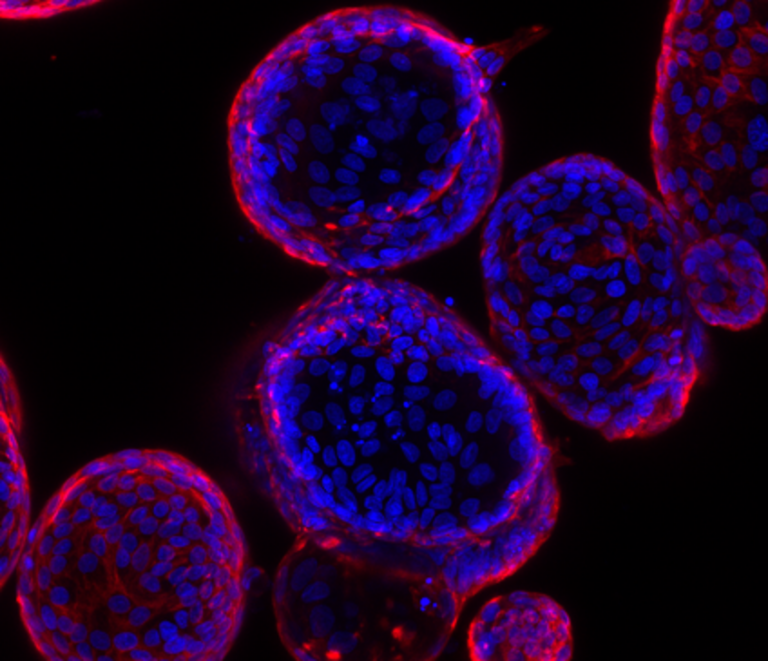Research Ethics and Project Support
The Health and Care Research Wales Portfolio is a register of high-quality health and social care research studies active in Wales. The Wales Gene Park research co-ordinator plays a critical role supporting numerous registered rare disease research projects that have a genetic and genomic focus.
Through this role, Wales Gene Park can offer support for studies from oversight of research ethics approvals, coordination of the registry, project amendments and update of reporting metrics, to the organisation of and communication, with participating sites for studies.
Current open research studies that are supported include:
Genetic mechanisms in polyposis of the bowel
Chief Investigator Dr. Hannah West
This study is recruiting across the UK and aims to discover novel genetic mechanisms underlying polyposis of the bowel and the development of tumours in this group of disorders. 12/WA/0071. IRAS 87399
This study has underpinned the identification of a genetic change that reduces the activity of a known tumour suppressor gene, causing the polyposis phenotype seen in a 4-generation family. This genetic change was not identified from the standard clinical diagnostic services because it does not occur in the main body of the gene. However, this highlights the potential usefulness of expanding the diagnostic screen, particularly for patients with suspected polyposis when a classical genetic change has not been identified.
Molecular genetic analysis of duodenal polyposis in the inherited colorectal adenoma and cancer predisposition syndromes (Familial Adenomatous Polyposis and MUTYH-Associated Polyposis)
Chief Investigator Dr. Laura Thomas
Patients with familial adenomatous polyposis (FAP) and MUTYH associated polyposis (MAP) are also at risk of developing premalignant and malignant tumours in the duodenum as well as the colorectum. This study investigates the genetic factors, inherited and somatic, associated with growth and progression of duodenal adenomas to cancer in MAP and FAP. 15/WA/0075 IRAS 158519
Exploring genetic causes of duodenal polyposis using healthy volunteers
Chief Investigator Dr. Laura Thomas
This study uses 3D organoid models to explore the genetic causes of duodenal polyposis by comparing affected patients with healthy volunteers. A comparison of healthy volunteers with 3D duodenal organoids established from patients with FAP and MAP (established as part of 15WA0075) can help to determine how polyps are arising in patients with these conditions. 19/YH/0310. IRAS 268541
A prospective Europe-wide study of duodenal disease in MUTYH-Associated Adenomatous Polyposis (MAP)
Chief Investigator Prof Julian Sampson
This first multi-centre European prospective study of duodenal disease in MAP aims to provide evidence as to whether surveillance recommendations developed for patients with FAP are also appropriate for patients with MAP. It aims to collect long-term data on the endoscopic findings and provide follow-up information to aid understanding of the natural history of duodenal disease in MAP, taking into account that some patients may require therapeutic procedures including removal of polyps where there is advanced duodenal disease. It will also prospectively collect data on the occurrence of colorectal cancer and extra-intestinal cancers. 11/WA/0208 IRAS 13304

Genes and the kidney in Tuberous Sclerosis (TSC)
Chief Investigator Prof. Julian Sampson
There is a small subgroup of patients with tuberous sclerosis who have severe renal cystic disease resembling that found in adult onset polycystic kidney disease but often with early or congenital onset. We reported contiguous gene deletions involving both TSC2 and PKD1 in these patients in 1994, but little is known about the natural history of the TSC2/PKD1 contiguous gene deletion syndrome into adulthood. The aim of this study is to determine the natural history of renal disease in patients with the TSC2/PKD1 contiguous gene deletion and compare this with patients with mutations in TSC2 or TSC1 alone. 10/MRE09/3. IRAS 10073
If you would like to know more about these studies, or find out more about how the Wales Gene Park Research Co-ordinator could assist your research, please get in touch with Caroline Ready, ReadyC@Cardiff.ac.uk

